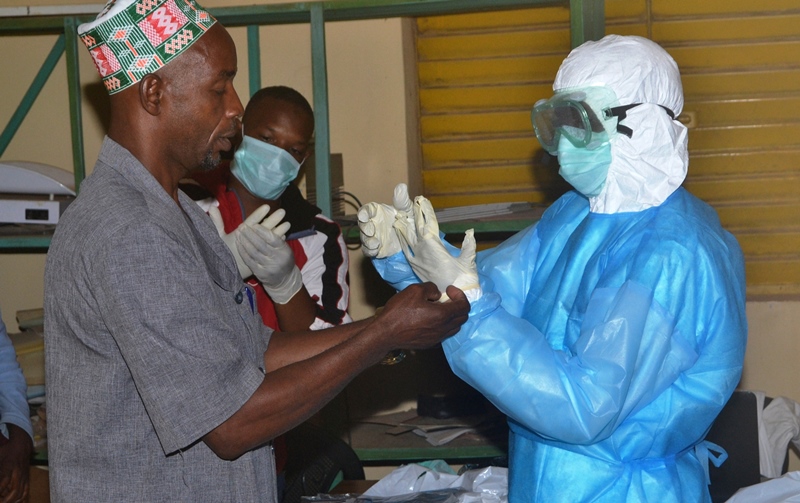ABIDJAN – A young man on camera names the person who’s challenged him to dump the contents of a bucket over his head. But in a twist on the ice bucket challenge, this man is soon drenched in frothy, soapy water – part of a campaign to raise awareness about Ebola prevention in West Africa.

Ivory Coast’s “Lather Against Ebola” campaign, catchy songs and comedy are being used by West Africans to educate people on how to avoid getting the deadly disease, which has infected more than 2,600 people and killed more than 1,400 in four countries across the region, according to the World Health Organization.
From Nigeria to Sierra Leone, songs and sketches have supplemented traditional media and government campaigns to educate the public about Ebola, which is spread through contact with the bodily fluids of infected people and can be partly contained by simple measures like regular hand-washing.
READ MORE: Canada pulling team from Sierra Leone over Ebola fears
The “Lather Against Ebola” campaign was inspired by the ice bucket challenge that has generated tens of millions of dollars for the ALS Association, which raises money for Lou Gehrig’s disease research.
Ivorian blogger Edith Brou knew the ice bucket campaign was getting lots of attention and wanted to make it more relevant in her home country. Despite bordering Guinea and Liberia, two countries that have been hit hard by the Ebola outbreak, Ivory Coast has yet to record a single case, and Brou wants to keep it that way.
“Our greatest threat right now is Ebola,” she said.
WATCH: Doctors Without Borders says health care system in Liberia has ‘broken down’ in wake of Ebola outbreak
Those who accept the “Lather Against Ebola” challenge – searchable on Twitter using its French name, #MousserContreEbola – are expected douse themselves with soapy water and hand out three bottles of hand sanitizer. Those who reject the soaking are expected to distribute nine. Since it launched on Aug. 18, dozens of participants have posted soap-soaking clips to social media.
“Ivorians take the drama out of everything through humour,” said Brou. “But in spite of the funny aspect of it, the message is forwarded on and listened to.”
Liberian rappers Shadow and D-12 recorded several Ebola-related tunes. Their hit song, “Ebola in Town,” was intended to counter early skepticism of the threat posed by the disease, which has infected more than 1,000 people in Liberia and killed at least 624. The disease has also his Guinea, Sierra Leone and Nigeria.\
READ MORE: U.S. health official says Ebola has ‘upper hand’
“No touching! No eating something!” the rappers warn listeners, playing up the disease’s dangers. What the song lacks in specificity it more than makes up in catchiness.
Earlier this month, Liberian soccer star and former presidential candidate George Weah added his own song, “Ebola is Real,” to the line-up. In Sierra Leone, rapper Special C’s song “Ebola Does Not Discriminate” and music video portray the dangers of hiding sick patients, a practice Sierra Leone’s parliament outlawed last week because of its potential to spread the disease.
And in Ivory Coast, the video for Israel Yoroba’s new reggae-inspired song “Stop Ebola” enlists children, market women and a coconut seller to get out the simple message, while the singer dances in the streets of downtown Abidjan.
In Guinea, the government recently decided to back a group of comedians and artists to stage travelling shows.
Local filmmaker Aziz Balde said this is the best way to educate ordinary Guineans: “In a country where two-thirds of the population is illiterate, we the artists are the mouths of the people.”
—
Associated Press writer Boubacar Diallo in Conakry, Guinea contributed to this report.



Comments